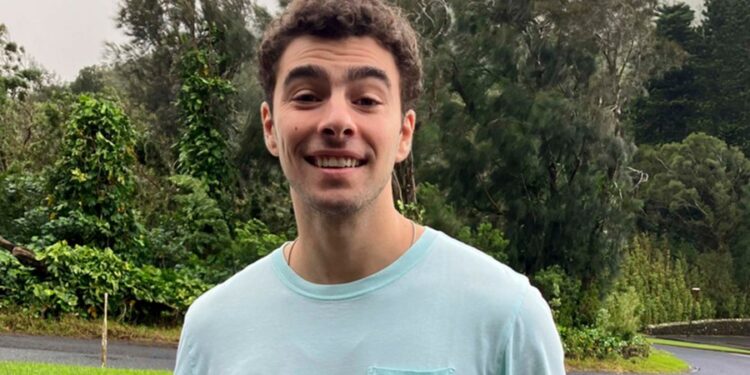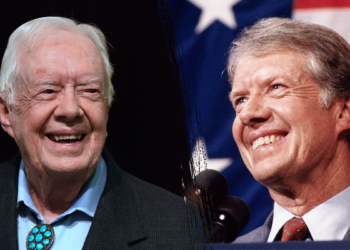(NewsNation) — Increasing public sympathy for Luigi Mangione, the man accused of fatally shooting UnitedHealthcare CEO Brian Thompson, could pose the possibility of jury nullification despite the overwhelming evidence mounted against him, some legal experts say.
Mangione faces multiple counts of murder, including murder as an act of terrorism under federal and state charges in New York and Pennsylvania, after allegedly gunning down Thompson as he was walking to an investor conference in Midtown Manhattan on Dec 4.
The federal charges could carry the possibility of the death penalty, while the maximum sentence for the state charges is life in prison without parole. Prosecutors have said the two cases will proceed on parallel tracks, with the state charges expected to go to trial first.
Luigi Mangione’s fandom could lead to jury nullification
Since his arrest, Mangione’s online fandom has rapidly grown, with supporters posting sympathetic messages, creating fan accounts and even raising thousands on crowdfunding sites to pay for his legal defense fund.
To these sympathizers, Mangione’s alleged crime symbolizes a rejection of the American health care system. That, coupled with him being easy on the eyes, has turned Mangione into a “modern-day Robin Hood,” former federal prosecutor Neama Rahmani told NewsNation.
“I have never seen a criminal defendant, much less an accused murderer, receive as much sympathy both on traditional media and social media. He is a folk hero of sorts to many,” Rahmani said.
Rahmani said there is a “very high possibility” of jury nullification in his case where a sympathetic juror could hold out for Mangione.

Jury nullification occurs when a jury returns a not guilty verdict even though jurors believe beyond reasonable doubt that the defendant has broken the law. This may happen when jurors disagree with the law or the punishment.
If that happens, there is a high probability of a mistrial, which happens when jurors aren’t able to reach the same verdict, Rahmani said. A nullifying juror could also convince other jurors to choose an acquittal.
Defense lawyers will lean in
Mangione’s defense lawyers, like any defense attorneys, will try to utilize any possibility of nullification, former federal prosecutor Joel Cohen said.
“That’s their job,” he said, to find those nullifiers and keep them on the jury, and in this case, there is a real possibility of it happening.
With the seemingly overwhelming evidence against Mangione, jury nullification could be what gets him acquitted or results in a mistrial, so the defense will lean into this, he said.
In most cases, people come in with some sort of bias, and even when they say they are capable of putting that aside for the case, it still manages to creep in, Cohen said. While a juror does not have the right to nullify, once they are seated, they have the power to do it, he added.
“Most jurors who have that nullifying feeling are not going to be honest about it most of the time, so it’s really hard to get into their heart and soul to find out what they’re really thinking and what the reason is for wanting to be on the jury,” he said.
That’s where judges and prosecutors really need to step up and do their best to weed it out, he said.
The evidence will prevail over jury nullification
Not all legal experts see nullification as a potential threat.
“I think it’s very unlikely that a case like this is going to confront something like jury nullification,” Gregory Germain, a professor at Syracuse University College of Law, said. “Most of us hate insurance companies and have had difficult experiences dealing with insurance companies, but that doesn’t mean we think people should be going around murdering insurance executives in the street.”
Germain said it’s unlikely potential nullifiers will be able to hide that level of bias during the jury selection process. He adds that while Mangione does have a large fanbase, most “people who want to live in a civilized society are not going to find him to be an appealing defendant.”
The mountain of evidence that appears to be against him will be too great for jurors to fling aside, he said.
“It just sounds like such an overwhelmingly strong case of murder that I just would be shocked if a jury came back with a not guilty verdict.”
The larger dangers of jury nullification in Mangione case
Jury nullification in the Mangione case could set a dangerous precedent that undermines the legal system, Rahmani said.
“If we can’t convict murderers who are caught in broad daylight in Manhattan because of the nature of the victim, it’s going to be a problem,” Rahmani said. Our legal system is based on fair, impartial juries, so anything that threatens that will pose issues.
The sentiment is shared by Cohen, who said there are several “dangers” of jury nullification, especially if it was done through deception during the jury selection process.
If people think they will get off the hook because a victim is unsympathetic, that may lead to similar attacks, he said. In the Mangione case, it’s even more concerning because this appears to be a planned attack.







